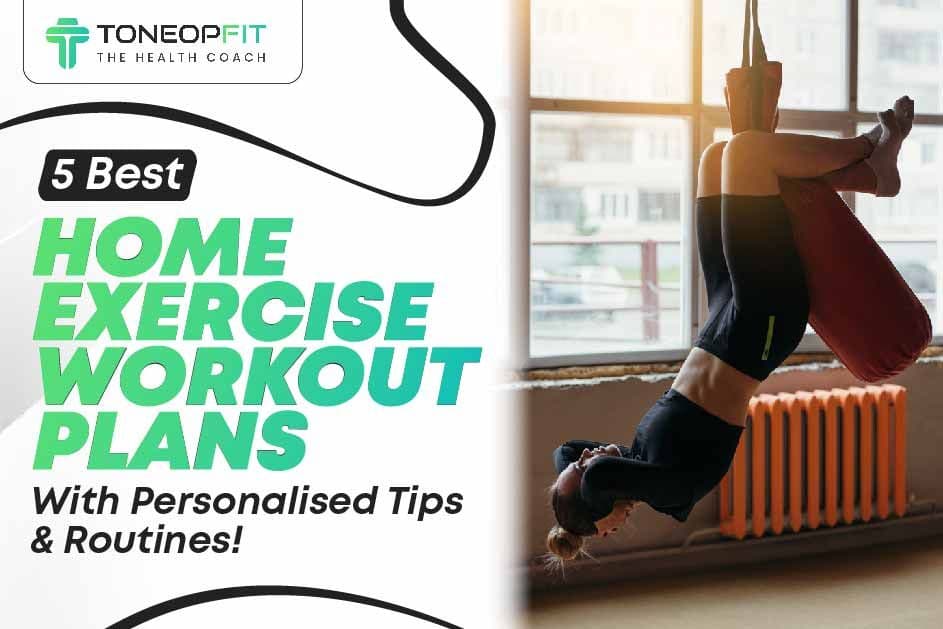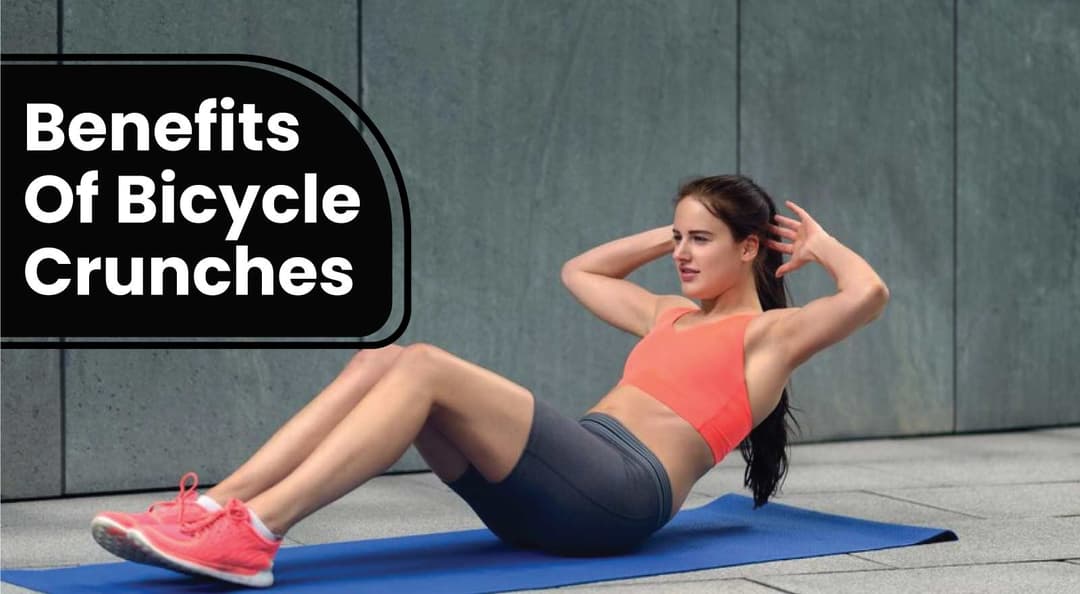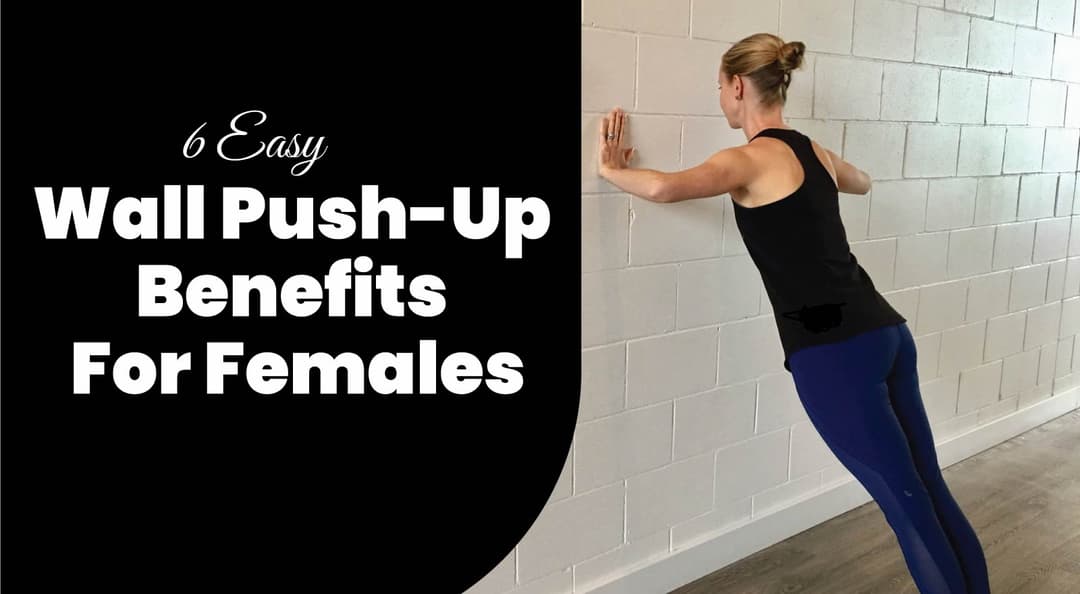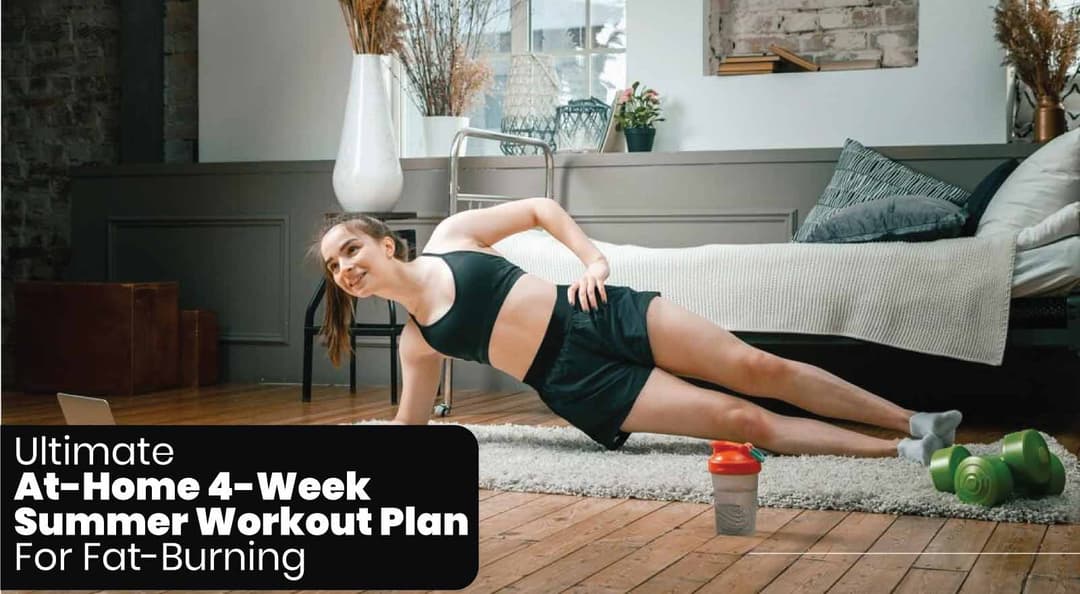Finding time to hit the gym can often feel like an impossible challenge amidst a busy lifestyle and work culture. However, the convenience of home workouts has never been more appealing. With the right guidance and personalised home exercise workout plans, transforming your living room into your fitness sanctuary becomes achievable and incredibly effective. The options are endless, from targeted workouts that sculpt and tone to high-intensity circuits that torch calories.
With personalised tips and routines tailored to your fitness level and aspirations, achieving your goals becomes a dream and a tangible reality. According to a recent fitness research report nationwide, 25.6% of individuals with a disability reported being physically inactive during a typical week, compared to 12.8% of those without a disability. This stark contrast underscores the importance of accessible and inclusive workout routines for beginners at home to overcome the barriers of traditional gym environments.
This blog explores the best home exercise workout plans with the best abs exercise routine and tips to make a home workout plan that transcends physical limitations. So, let’s get started!
Table Of Contents
1. What Is The Best At-Home Exercise Program? 5 Best Home Exercise Workout Plans
2. What Is The 4-30-10 Method For Abs And Chest Workouts At Home?
3. How Do I Plan A Workout Routine At Home?
4. What Is A Good 7 Day Workout Plan At Home?
5. Sample Plan For Abs Workout At Home With Abdominal Exercises
6. The Final Say
7. FAQs
8. References
What Is The Best At-Home Exercise Program? 5 Best Home Exercise Workout Plans

Let’s explore the best home exercise workout plan or programs to do compound functional fitness training for better results:
1. 10-Minute EMOM Workout
EMOM stands for Every Minute on the Minute. In this workout, you perform a specific exercise or set of exercises at the start of every minute for 10 minutes straight. Whatever time remains after completing the exercise(s) within that minute is your rest period before starting the next round. This format encourages intensity and efficiency, making it ideal for busy individuals.
How To Perform 10-Minute EMOM Workout?
1. Select 1-2 exercises that target large muscle groups or provide a full-body challenge (e.g., squats, burpees).
2. Set a timer for 10 minutes.
3. At the start of each minute, perform the chosen exercise(s) for a set number of repetitions or 20-30 seconds.
4. Use the remaining time in each minute as your rest period.
5. Repeat this pattern for the duration of the 10 minutes, aiming to maintain intensity throughout.
2. 20-Minute Abs Workout
This workout is designed to target your abdominal muscles comprehensively within 20 minutes. It typically includes a variety of exercises such as crunches, planks, leg raises, and Russian twists. By engaging the core muscles from different angles and intensities, this workout aims to strengthen the abs, improve core stability, and contribute to better posture.
How To Do Abs Workout?
1. Lay out your exercise mat or find a comfortable surface.
2. Set a timer for 20 minutes.
3. Perform abdominal exercises such as crunches, planks, leg raises, Russian twists, and bicycle crunches.
4. Aim for 30-60 seconds of work for each exercise, followed by 10-15 seconds of rest.
5. Cycle through the exercises, focusing on proper form and engaging the core muscles.
6. Complete as many rounds as possible within the 20-minute timeframe.
Also Read: 12 Best Abdominal Fat Workout Exercises And Ways To Lose Belly Fat in 15 Days!
3. 30-Minute Full-Body Circuit
A full-body circuit workout involves performing a series of exercises that target different muscle groups in succession, with minimal rest between exercises. This workout format offers a balanced approach to fitness by incorporating strength, cardiovascular, and endurance elements. A typical circuit might include exercises like squats, push-ups, lunges, rows, and burpees, performed for a set number of repetitions or time intervals.
How To Perform Full-Body Circuit Workout?
1. Select 5-7 compound exercises that target different muscle groups (e.g., squats, push-ups, lunges, rows, burpees).
2. Set up a circuit by assigning each exercise to a station or designated area.
3. Set a timer for 30 minutes.
4. Perform each exercise for a set number of repetitions or 30-60 seconds.
5. Move from one station to the next with minimal rest between exercises.
6. Once you complete all exercises in the circuit, take a 1–2-minute rest.
7. Repeat the circuit for 30 minutes to maintain intensity and form throughout.
4. Fat-Burning Bodyweight Workout
This workout uses only bodyweight exercises to minimise calorie burn and fat loss. Engaging large muscle groups and incorporating high-intensity intervals boosts metabolism and promotes fat burning. Exercises like jumping jacks, mountain climbers, burpees, and high knees are commonly included to elevate heart rate and stimulate the body's fat-burning mechanisms.
How To Do Bodyweight Workout?
1. Warm up with 5-10 minutes of light cardio (e.g., jogging in place, jumping jacks).
2. Set a timer for 20-30 minutes.
3. Perform bodyweight exercises, including jumping jacks, mountain climbers, burpees, high knees, and squat jumps.
4. Alternate between high-intensity exercises and short rest periods (e.g., 30 seconds work, 15 seconds rest).
5. Aim to keep your heart rate elevated throughout the workout by moving quickly between exercises.
6. Cool down with 5-10 minutes of stretching at the end.
5. Alternate Tabata Workouts
Tabata workouts are high-intensity interval training (HIIT) sessions consisting of 20 seconds of all-out effort followed by 10 seconds of rest, repeated for 4 minutes (8 rounds total). Alternate Tabata workouts involve alternating between different exercises or muscle groups within each Tabata interval. This variation keeps the workout engaging and allows for targeted conditioning of multiple muscle groups while maximising calorie expenditure and cardiovascular benefits.
How To Do TABATA?
1. Select 4-5 exercises targeting different muscle groups or movement patterns.
2. Set a timer for 4 minutes (8 rounds of 20 seconds work, 10 seconds rest).
3. Perform the first exercise at maximum intensity for 20 seconds, followed by 10 seconds of rest.
4. Repeat this pattern for all 8 rounds, totalling 4 minutes.
5. Take a 1–2-minute rest, then move on to the next exercise and repeat the Tabata interval.
6. Continue cycling through each exercise until you complete all rounds.
7. Aim to maintain intensity and effort throughout each 20-second work interval.
What Is The 4-30-10 Method For Abs And Chest Workouts At Home?
The 4-30-10 method is a workout technique that involves performing a specific exercise with a particular tempo and timing scheme. This method can be applied to various muscle groups, including abs and chest workouts at home. This method combines slow and controlled eccentric movements with an isometric hold and explosive concentric movements. It can help increase time under tension, improve muscle endurance, and challenge the muscles differently than traditional sets and reps.
Here's how it works:
1. Select an exercise that targets the abs or chest muscles. You might choose exercises like crunches, leg raises, or planks for abs. Push-ups or chest presses (if you have weights) are effective choices for the chest.
2. Set a timer for the 4-30-10 timing scheme.
3. Perform the Exercise:
- 4 Seconds Eccentric Phase: Begin by lowering your body (or the weight) slowly and with control. For example, this would be the lowering phase towards the ground during a push-up.
- 30 Second Hold: Once you reach the bottom position of the movement, hold it isometrically for 30 seconds. For push-ups, this would be the bottom position where your chest is closest to the ground. For abs, this might be the contracted position of a crunch or plank.
- 10 Seconds Concentric Phase: After holding the bottom position for 30 seconds, explosively push or contract your muscles to return to the starting position. For abs, this might be the upward motion of a crunch or returning to the plank position.
4. Perform the exercise for the designated number of repetitions or a specific duration, following the 4-30-10 timing scheme for each repetition.
How Do I Plan A Workout Routine At Home?
Let’s explore the essentials to consider while making your personalised home exercise workout plans weekly:
1. Select Your Workout Days
Decide how many days per week you can commit to exercise, aiming for a minimum of three to five days. This frequency allows sufficient training volume to see results while providing adequate rest and recovery between sessions.
2. Choose Your Workout Types
Begin by selecting exercises that you enjoy and align with your fitness goals. Whether it's the strength-building challenge of weightlifting, the heart-pumping intensity of cardio, or the flexibility-enhancing benefits of yoga, find activities that keep you engaged and motivated to stay consistent with your routine.
3. Create A Balanced Routine
Ensure your workout routine incorporates cardiovascular exercise, strength training, and flexibility. This balanced approach targets different muscle groups, improves overall fitness, and reduces the risk of overuse injuries. By diversifying your workouts, you'll see more comprehensive results and enjoy a well-rounded fitness regimen.
4. Plan Your Workouts
Organise your weekly schedule by assigning specific workouts to each day, alternating between different types of exercises. This variety prevents boredom, allows adequate recovery time, and reduces the risk of burnout or overtraining. Remember to include rest days to allow your body to repair and rebuild muscle tissue.
5. Gather Necessary Equipment
Assess the exercises you plan to include in your routine and determine the equipment you need. This might consist of basic items like dumbbells, resistance bands, a yoga mat, or larger equipment like a stationary bike or treadmill. Ensure you have access to these tools at home or invest in them gradually to support your workouts effectively.
6. Prepare Your Space
Designate a specific area in your home for your workouts, free from clutter and distractions. Clear enough space to move freely and perform exercises safely. Consider factors like ventilation, lighting, and flooring to create a comfortable and conducive environment for physical activity.
7. Progressive Overload
Implement a progressive overload strategy to challenge your muscles and stimulate growth and adaptation continually. Gradually increase your workouts' intensity, duration, or resistance over time. This could involve adding more weight, increasing repetitions, or trying more advanced variations of exercises as you become stronger and more proficient.
Also Read: Elevate Your Workout Routine With These 11 Best Evening Exercises For Weight Loss
What Is A Good 7 Day Workout Plan At Home?
Note these 7-day home workout plans to follow a balanced approach to fitness, incorporating strength training, cardio, core work, flexibility, and recovery.
Day | Workout Type | Inclusions |
1 | Full-Body Strength | Engage in a series of compound exercises targeting major muscle groups. Examples include squats, lunges, push-ups, rows, and planks. |
2 | Cardio and Core | Incorporate cardio exercises like jumping jacks, high knees, or skipping rope for 20-30 minutes, followed by a core workout focusing on crunches, leg raises, and Russian twists. |
3 | Lower Body Focus | Concentrate on lower body strength exercises such as deadlifts, glute bridges, calf raises, and leg curls. |
4 | Active Recovery | Engage in low-intensity activities such as walking, yoga, or stretching to promote muscle recovery and flexibility. |
5 | Upper Body Strength | Target the upper body with exercises like push-ups, pull-ups, shoulder presses, bicep curls, and tricep dips. |
6 | HIIT Workout | Perform high-intensity interval training (HIIT) involving short bursts of intense exercise followed by brief rest periods. |
7 | Flexibility and Mobility | Dedicate time to stretching and mobility exercises to improve flexibility and prevent injury. Focus on stretching major muscle groups. |
Sample Plan For Abs Workout At Home With Abdominal Exercises
Note this abs workout routine, including warm-up exercises to prepare the body, core exercises to strengthen and tone the abdominal muscles, and cool-down stretches to improve flexibility and promote recovery.
Phase | Activity | Inclusions |
Warm-Up | 1. Jumping Jacks | Start with 2 sets of 20 jumping jacks to increase heart rate and warm up the muscles. |
| 2. Torso Twists | Perform 2 sets of 15 torso twists to engage the core and loosen up the spine. |
Core Workout | 1. Crunches | Begin with 3 sets of 15 crunches, focusing on engaging the abdominal muscles and lifting the shoulders off the ground. |
| 2. Bicycle Crunches | Move into 3 sets of 20 bicycle crunches, alternating elbow to knee while keeping the core tight. |
| 3. Plank | Hold a plank position for 3 sets, starting with 30 seconds and gradually increasing to 1 minute, focusing on maintaining a straight line from head to heels. |
| 4. Russian Twists | Complete 3 sets of 15 Russian twists with or without weight, rotating the torso from side to side to engage the obliques. |
Cool Down | 1. Cat-Cow Stretch | Transition into a cat-cow stretch, moving through rounds of 10 repetitions to stretch and release tension in the spine. |
| 2. Deep Breathing | Conclude with 3-5 minutes of deep breathing exercises, focusing on inhaling deeply through the nose and exhaling fully through the mouth to relax the body. |
The Final Say
To sum up, home exercise workout plans offer a flexible and accessible solution for individuals seeking to prioritise their health and fitness amidst the demands of modern life. Proper guidance and personalised routines make transforming your home into a fitness sanctuary achievable and highly effective. From aiming to sculpt your physique and boost your endurance to improving your wellness, try the convenience and versatility of home workouts to empower you to take control of your fitness journey on your terms.
FAQs
1. Can I do tricep workouts with dumbbells at home?
Yes, absolutely! Dumbbells are versatile and effective tools for tricep workouts at home. Exercises like tricep kickbacks, overhead tricep extensions, and lying tricep extensions can all be performed with dumbbells to target and strengthen the tricep muscles.
2. What are the best dumbbell tricep exercises?
Some of the best dumbbell tricep exercises include overhead tricep extensions, kickbacks, lying tricep extensions (skull crushers), tricep dips, and close-grip bench presses. These exercises effectively target the triceps and can be performed with just a pair of dumbbells.
3. Can I perform chest training at home without equipment?
Yes, you can perform chest training at home without equipment by utilising bodyweight exercises. Various push-ups such as wide-grip and close-grip, chest dips, and chest presses using household items like chairs or sturdy tables can effectively target the chest muscles.
4. What is the best HIIT exercise to reduce belly fat for females at home?
One of the best HIIT exercises for reducing belly fat for females at home is using high knees. This exercise involves running in place while lifting the knees as high as possible, engaging the core and increasing heart rate to burn calories and promote fat loss around the abdominal area.
5. Can I do workouts to lose belly fat at home?
Yes, you can definitely do workouts to lose belly fat at home. Combining cardiovascular exercises, strength training, and core-focused workouts can help burn calories, build muscle, and effectively target belly fat. Exercises like planks, mountain climbers, bicycle crunches, and HIIT workouts can reduce belly fat when performed regularly.
References
- https://www.rxresource.org/fitness/exercise-and-fitness-facts-and-statistics.html
- https://www.helpguide.org/harvard/whats-the-best-exercise-plan-for-me.htm
- https://blog.nasm.org/workout-plan-for-beginners
- https://www.helpguide.org/articles/healthy-living/what-are-the-best-exercises-for-me.htm#:~:text=The%20most%20effective%20exercise%20plans,and%20flexibility%20and%20balance%20exercises.
- https://www.mayoclinic.org/healthy-lifestyle/fitness/in-depth/fitness/art-20048269
About ToneOp Fit
ToneOp Fit is a platform dedicated to improving and maintaining good health through a comprehensive range of goal-oriented health plans with up to 3 Coach support. With a range of Weight Management, Medical Condition, Detox Plans, and Face Yoga Plans, the app also provides premium health trackers, recipes and health content. Get customised diet, fitness, naturopathy & yoga plans and transform yourself with ToneOp.









































